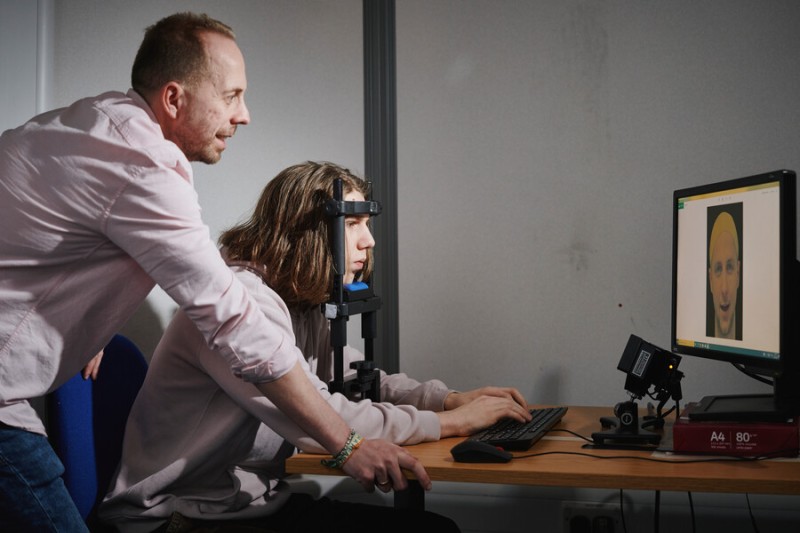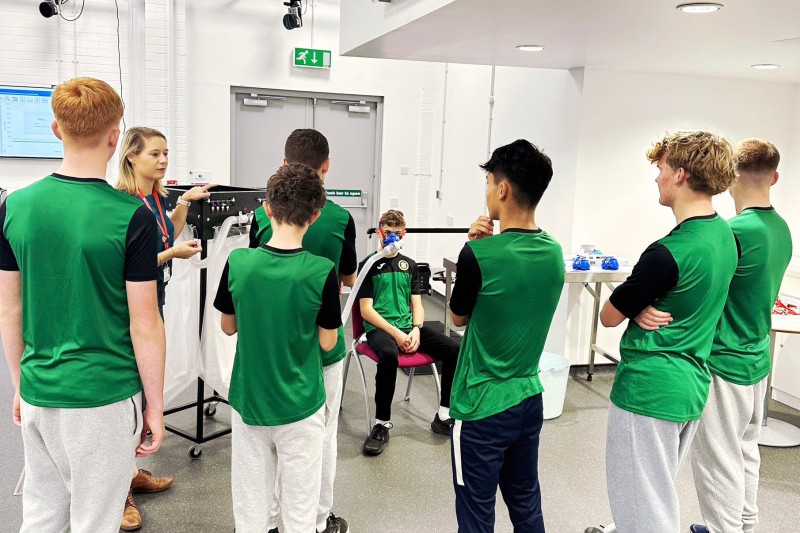Bournemouth University graduate and current Head of Programmes for BBC Radio 1 Rhys Hughes visited BU to give a guest lecture to students from the Faculty of Media and Communication.
Having graduated from BU 28 years ago, Rhys was on hand to offer advice to students and share his industry experience. We caught up with him before to talk broadcasting, Bournemouth, and the future of music.
Rhys, how does it feel to be back in Bournemouth?
I feel so old. I graduated 28 years ago from here. This room [The Loft] used to be the pool hall and my band used to practice right here. I studied English and Media Studies from 84-87.
The uni is twice the size it was 28 years ago, the main entrance was similar, and some of the smaller buildings I’ve remembered. The main hall was where all the bands and DJs played was downstairs.
What was Bournemouth like back then?
I loved it. Because part of my degree was English we all got jobs in the summer teaching in the language schools. It was a great life down here – long summers, the beach, great countryside. There were some good clubs back in the day – we used to go to a place called Bacchus, which I don’t think exist anymore, it used to be a little late night drinking hole where bands played. There was a club called The Third Size that we used to go to a lot up in the triangle. There was a club called Charry Varry – I think, which was a gay club, that was really good. There were some decent bands that used to come through this place back in the day.
Have you got any advice for young people aspiring to work in Radio?
Tenacity - being prepared to take the knockbacks. In terms of Radio 1 and 1Xtra now, it is very much a multi-platform, multi-faceted brand, it is not just about radio. So we’re looking at Radio presenters coming from the YouTube generation.
I think what’s so fascinating now with the technology being so ready and cheap is that you can become a media star in your own right like Zoella and Tomska.
I think with R1 and 1Xtra one of the things that is absolutely key is a passion for music, which is why I got into it in the first place. And also the ability to tell good stories is really important.
In terms of production side – it’s everything – being able to film, edit video, an in depth knowledge of his social media works and to be aware of all the trends. The way the media is moving is so faced-paced now - if you look at Zane Lowe leaving last week to go for Apple, ten years ago R1’s competition was kind of Global and Bauer Radio, now it’s iTunes Spotify, YouTube, Google – everything.
And what can you tell me about the younger DJs and In New DJs We Trust?
Toddla T and Scream I was involved with bringing to Radio 1, and heavily involved in hiring Annie Mac, but then also through the Residency now with people like Kaytranada, Solomun, George Fitzgerald, Flying Lotus, obviously, I’ve been a big champion of Heidi over the years, and the more techy side. I’m a big dance music fan, not such a huge fan of EDM, Tech-house and tech-side. What’s great is that the backlash in EDM has started in America as well and they’re kind of getting deeper into the music now.
How proud are you when you have someone like Annie Mac taking over from Zane Lowe’s show?
Really proud. With Annie, she went from a BA in the evening session to… well she is the world’s biggest dance DJ, there is no question about that. She’s just about to embark on a US tour in a couple of weeks. Obviously she has done it all herself but I was instrumental early on. She badgered me about ten years ago telling me that: “I want to be on air, I want to be on air”, and we put her in the studio, and I kind of love that sort of lilting Dublin accent.
Radio 1 seems like a good organisation in terms of women and equality?
I think that Radio 1 and 1Xtra we’ve been at the forefront of trying to push as many women on to the air as we can. They’re there on merit, but Radio 1 over the years has had a strong history in that, from Zoe Ball and Sarah Cox on Breakfast and then people like Annie Mac, B. Traits, Heidi, Monki, and then in the more mainstream field Alice Levine, people on 1Xtra like Clara Amfo, Sian Anderson, A. Dot. I mean it has been quite male, but we’ve been really conscious of trying to address that balance – we’re not there yet, there’s a long way to go.
So what about Beats poaching Zane Lowe last week, does that tell us something about the future of music?
I think what’s happening is what the streaming services really want is curation. If you listen to Spotify it’s quite a flat listen. You can put in: “ska from 1964 to 1967” but you don’t get any kind of in-depth knowledge and I think that’s what Apple, Beats, iTunes, Spotify and Pandora are doing, and that’s exactly what they have done in poaching Zane. I think Zane’s big interviews with Kanye West, Jay-Z and Eminem have really helped him, and I imagine that Jay-Z’s next big album launch will feature an interview with Zane shot in Northern California exclusively available on iTunes for 30 days before.
They want curation; there is so much new music out there that is hard to navigate and they want a trusted guide.
So what about Spotify then, what does Beats mean for them?
What you’re hearing in the tech press is that when Beats launches it will be priced at $7.99, which will undercut Spotify in the States. YouTube, Google and iTunes will all be competing.
What happened is that a lot of the major record label bosses in the early noughties and late nineties buried their head in the sand about Napster and all that, because they were earning vast amounts of money themselves and things were good and it [problems] weren’t going to be on their watch. Then iTunes comes out and stole a march on the distribution. Labels are trying to claw it back now but the genie’s out of the bottle a little bit.
The younger end of the music [market] is also not buying music like they used to; they are impatient. Where the money is in music now is in live, and that’s why a lot of these deals that labels are doing are 360 deals – it’s the live [shows], it’s the merchandise, it’s the DVDs – other revenue streams. It’s also why some of the US rappers have been really smart in moving into clothing lines and that – and 50 Cent in energy drinks.
I mean it is kind of capitalism gone mental, and some of them old 60’s hippies would have something to say about it - I mean Roger Daltrey this was talking about how pop music needs to be angrier. I mean, where’s the next punk rock?
So finally, tell us what you were like as a student?
I was bad – I didn’t even go to my graduation – I got the degree in the post because I was a rebel. My Dad did that and told me to do the same.
It was a very different time then, it was sort of Thatcher’s Britain, Miner’s strike, it was the poll tax – it was a very divided country back then.
I had an absolute ball here and I have a son who’s 14 and I sort of say to him, “go to university”. You know it’s about learning but it’s also learning about life and relationships and friends. I am still very much in touch with about ten people that were in my year; I made friends for life here, without question.



